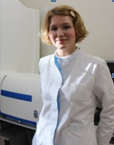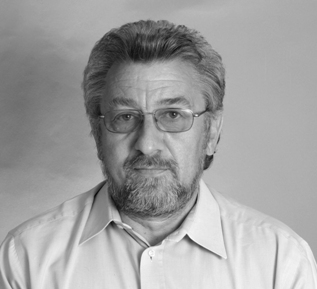Theme: Advanced Technologies and Innovations to Beat Diabetes.
Herbal Diabetes 2021
- Diabetes, Endocrinology and Healthcare
- About Webinar
- Sessions/ Tracks
- Market Analysis
- Past Conference Report
May 10 - May 11, 2021 | Webinar
Conference Series LLC Ltd welcomes you to attend the Diabetes, Endocrinology and Healthcare Conference to be held on May 10 - May 11, 2021. The theme for the conference this year is Advanced Technologies and Innovations to Beat Diabetes.
Details of Diabetes 2021 Webinar
| Conference Name | Place | Date |
|---|---|---|
| Diabetes 2021 | Webinar | May 10-11, 2021 |
Conference Series Ltd extends its welcome to 26th Diabetes, Endocrinology and Healthcare on May 10th and 11th 2021 (Webinar). Conference Series Ltd through its Open Access Initiative is committed to make genuine and reliable contributions to the scientific community.
Conference Series Ltd Organizes 1000+ Conferences Every Year across USA, Europe & Asia with support from 1000 more scientific societies and Publishes 700+ Open access journals which contains over 100000 eminent personalities, reputed scientists as editorial board members.
Diabetes, Endocrinology and Healthcare 2021 includes symposiums, keynote speeches, plenary talks, poster sessions and panel discussion on latest research developments in the field of diabetes and endocrine disorders.
This Conference is a platform for Diabetes and endocrinology students, faculty, deans, researchers, and leaders to collaborate on topics affecting diabetes and endocrine disorders. Attendees can take advantage of opportunities to learn about diabetes and endocrinology research from a variety of oral and poster presentations. Meet and network with nurses ranging from students to deans, faculty, and researchers. This is your best opportunity to reach the largest assemblage of participants from the 26th Diabetes, Endocrinology and Healthcare.
Target Audience:
CEOs, Directors of Association and Societies, Scientists, Doctors, Professors, Diabetes Lecturers, Endocrine Lecturers, Nurses, Diabetes Practitioners, Medical Students, surgeons, young researchers, industrial delegates, Pharmaceutical Industries, Herbal institutes, Herbal research centers, Healthcare Industries, Pharmacological and Pharmacognosy Industries.
Why to Attend?
- Price ReductionAffordability.
- Geographical Hurdles Knock Down.
- Comfort from the ease of your own house or from work.
- They are Archived: Power to access recording incidents.
- Perfect resource for discovering new strengths in a career.
- Know the Pros from
- Exposure of your study internationally.
- Make fresh ties.
- Substantial time saves.
- Increased contact.
- Broader Scope.
- More Involving.
- Place yourself as an expert.
Aim of the webinar-
It attempts to bring together leading academics, researchers, and research scientists to share their perspectives and research findings on all facets of metabolic syndromes and diabetes. It also gives scholars, professionals, doctors and educators a leading interdisciplinary forum to present and address the newest ways to cure diabetes.
Track 1: Endocrinology
Endocrinology is a field of medicine that deals with the endocrine system, its disorders, hormones, and its unique secretions. It is also concerned with the incorporation of developmental events proliferation, progression, and differentiation, and the psychological or behavioral behaviors of metabolism, growth and development, tissue activity, sleep, digestion, respiration, excretion, mood, stress, hormone-caused lactation, motion, reproduction, and sensory perception. The endocrine system consists of multiple glands that secrete hormones directly into the blood rather than into a duct system, all in separate areas of the body. Endocrine glands are, thus, known as ductless glands.
Diabetes mellitus is commonly known as diabetes, is a group of metabolic disorders characterized by high blood sugar levels over a prolonged period. Symptoms of high blood sugar include frequent urination, increased thirst, and increased hunger. Acute complications can include diabetic ketoacidosis, hyperosmolar hyperglycemic state, or death. Serious long-term complications include cardiovascular disease, stroke, chronic kidney disease, foot ulcers, and damage to the eyes. Diabetes is due to either the pancreas not producing enough insulin, or the cells of the body not responding properly to the insulin produced.
- Pediatric diabetes
- Diabetes Medication
- Type 1 Diabetes
- Type 2 Diabetes
- Gestational diabetes
- Emerging focus on diabetes research
- Diabetes education and its risk factors
- Diabetes symptoms
Related Societies:
Australian Diabetes Society | Diabetes Conference | Diabetes Conferences |Asian Association for the Study of Diabetes | Diabetes Association of Nigeria | Diabetes Congress | Diabetes Association of the Republic of China | Dietitians Association of Australia | Nutrition Society of Malaysia | Hypertension Conference | Heart Failure Society of America | Heart Failure Conference | Luxembourg Society of Cardiology | Austrian Heart Foundation | Endocrinology Events | Endocrinology Conferences | Australian Cardiovascular Health and Rehabilitation Association | The Japanese Society of Hypertension | Cardiovascular Conferences | American Stroke Association | International Society for Applied Cardiovascular Biology |
Track 2: Diabetes Nursing
Evidence suggests that the nurse specialist has a key role in supporting the integrated management of chronic disease through nurse-led clinics in primary care. The National Clinical Program for Diabetes was established in 2010 to improve care for people with diabetes in Ireland. The new model of integrated care aims to standardize diabetes management. The satisfaction survey assessed the impact of education on patients’ understanding of and motivation to manage diabetes and planned lifestyle changes.
Related Societies:
European Society of Endocrinology | Heart Conferences| Diabetes Conferences | Central European Diabetes Association | Diabetes Summit | FAND - Italian Association of Diabetics | Hypertension Conference | British Cardiac Society | Endocrinology Conferences | European Society of Cardiology | Obesity Conferences | Diabetes Conferences | World Health Organization | World Heart Federation | Diabetes Conference | Hypertension Meetings | European Association for the Study of Obesity | European Obesity | Endocrinology Conferences | European Childhood Obesity Group (ECOG) | Diabetes Nursing Conference | Diabetes Conferences | Association of European Cancer | British Congenital Cardiac Association |
Track 3: Obesity Health Effects
Venture out dealing with your weight from the solace of your home. Utilize our BMI adding a machine to enable you to decide if you are viewed as stout. If you are hefty, or have at least one hazard factors for weight, our doctors can help. In instances of serious stoutness, surgery is probably a preference. Fat prompts case High circulatory strain, Diabetes, Heart sickness, Joint issues, Cancer, Metabolic disorder, psychosocial impacts, Sleep apnea and respiratory issues. These are some rescuer medical issues caused by obesity.
- Glucose intolerance
- Retinopathy
- High blood pressure
- Type 2 diabetes
- Cholesterol
- Coronary heart disease
- Cancer
- Stroke
- Gallbladder disease
- Low quality of life.
Related Societies:
American Association of Diabetes Educators | Diabetes Conferences | Diabetes Conference | American Diabetes Association | Diabetes Disease Conferences | American Association for Clinical Endocrinology | Diabetes Greece | American Cardiology Association | Endocrinology Conferences | American Heart Association | American Society of Nuclear Cardiology | Cardiology Conferences | National Association of Nutrition and Aging Services Programs | Hypertension Conferences | American Society of Hypertension | Arizona Society of Echocardiography | Diabetes Conference 2019 | Diabetes Conferences | Kyrgyz Society of Cardiology | Australasian Diabetes in Pregnancy Society | Diabetes and Heart Conferences
Track 4: Acupressure
The prescribed acupuncture methods for the treatment of type 1 and 2 diabetes vary significantly, just as Western medicine treatments differ. Within the diabetes continuum, there are two distinct disorders. Methods are prescribed according to the signs of diabetes you want to treat. To assist with weight loss, appetite, organ development, and nerve pain, there are acupuncture therapies. Wrist-ankle therapy is a vigorously practiced acupuncture procedure that treats diabetic neuropathy. The procedure requires intense relaxation of the muscles of the wrist and ankle.
- Acupuncture Techniques
- Acupuncture in pain management
- Cupping therapy
- Acupuncture and insulin resistance.
Related Societies:
Australian Diabetes Society | Diabetes Conference | Diabetes Conferences |Asian Association for the Study of Diabetes | Diabetes Association of Nigeria | Diabetes Congress | Diabetes Association of the Republic of China | Dietitians Association of Australia | Nutrition Society of Malaysia | Hypertension Conference | Heart Failure Society of America | Heart Failure Conference | Luxembourg Society of Cardiology | Austrian Heart Foundation | Endocrinology Events | Endocrinology Conferences | Australian Cardiovascular Health and Rehabilitation Association | The Japanese Society of Hypertension | Cardiovascular Conferences | American Stroke Association | International Society for Applied Cardiovascular Biology |
Track 5 : Herbal Medicine Importance and Usage in Diabetes
Diabetes is a significant human disease that affects many people in various countries from different walks of life. There are different approaches to mitigating the ill effects of diabetes and its secondary complications, though. Herbal medicine, also called botanical medicine or phytomedicine, refers to the use for medicinal purposes of a plant's seeds, fruit, stems, leaves, bark, or bulbs. The formulations of herbs are preferred due to lesser side effects and low cost. A catalog of medicinal plants used in the treatment of diabetes is compiled with proven antidiabetic medications and their beneficial effects and herbal medicines. There are staggering costs of treatment for diabetes and its associated complications. For example, in 2013 it was reported that over 382 million people in the world have diabetes.
Related Societies:
European Society of Endocrinology | Heart Conferences| Diabetes Conferences | Central European Diabetes Association | Diabetes Summit | FAND - Italian Association of Diabetics | Hypertension Conference | British Cardiac Society | Endocrinology Conferences | European Society of Cardiology | Obesity Conferences | Diabetes Conferences | World Health Organization | World Heart Federation | Diabetes Conference | Hypertension Meetings | European Association for the Study of Obesity | European Obesity | Endocrinology Conferences | European Childhood Obesity Group (ECOG) | Diabetes Nursing Conference | Diabetes Conferences | Association of European Cancer | British Congenital Cardiac Association |
Track 6: Traditional medicines
Traditional Chinese medicine (TCM) is a method of healing that is thousands of years old. Around 60 percent of the world's population uses conventional medications obtained from medicinal plants. In Chinese culture, it has long been used to treat the complex of symptoms identified by Western medicine as diabetes mellitus. TCM therapies which play a role in the assessment and treatment of diabetic patients for diabetes, the Chinese language uses two words. In certain cases, the common name, Xiao-ke, coincides closely with diabetes. "Xiao-ke syndrome means "waste and hunger." Tang-niao-bing, the more recent term, means "sugar urinary disorder." The traditional term refers to diabetes in the earliest sources, including Huang Di Nei Jing, the first medical text in Chinese literature.
- Chinese herbs
- Chinese nutrition
- Tui Na massage
- Cupping/Scraping
- Acupuncture
Related Societies:
Australian Diabetes Society | Diabetes Conference | Diabetes Conferences |Asian Association for the Study of Diabetes | Diabetes Association of Nigeria | Diabetes Congress | Diabetes Association of the Republic of China | Dietitians Association of Australia | Nutrition Society of Malaysia | Hypertension Conference | Heart Failure Society of America | Heart Failure Conference | Luxembourg Society of Cardiology | Austrian Heart Foundation | Endocrinology Events | Endocrinology Conferences | Australian Cardiovascular Health and Rehabilitation Association | The Japanese Society of Hypertension | Cardiovascular Conferences | American Stroke Association | International Society for Applied Cardiovascular Biology |
Track 7: Ayurveda- The science of eight components
The vast science of Ayurveda is divided into eight branches, which are collectively referred to as Ashtang Ayurveda. Ayurveda believes in specialized care for multiple body parts, like all other western therapeutic treatments. Medicinal art has also been divided into divisions concerned with neuroscience, internal medicine, eye, ear, nose, throat and head care, toxicology, and separate gerontology. The first medical system to classify pediatrics, aphrodisiacs, and surgery as the divisions of every medical profession is Ayurveda.
- Pitta vitality is connected to flame and is thought to control the stomach related and endocrine frameworks. Individuals with pitta vitality are viewed as red hot in demeanor, astute and quick paced.
- Vata vitality is related with air and space, and is connected to substantial development, including breathing and blood dissemination. Vata vitality is said to prevail in individuals who are vivacious, imaginative, unique masterminds.
- Kapha vitality, connected to earth and water, is accepted to control development and quality, and is related with the chest, middle and back. Kapha types are viewed as solid and strong in constitution, and by and large quiet in nature.
Related Societies:
European Society of Endocrinology | Heart Conferences| Diabetes Conferences | Central European Diabetes Association | Diabetes Summit | FAND - Italian Association of Diabetics | Hypertension Conference | British Cardiac Society | Endocrinology Conferences | European Society of Cardiology | Obesity Conferences | Diabetes Conferences | World Health Organization | World Heart Federation | Diabetes Conference | Hypertension Meetings | European Association for the Study of Obesity | European Obesity | Endocrinology Conferences | European Childhood Obesity Group (ECOG) | Diabetes Nursing Conference | Diabetes Conferences | Association of European Cancer | British Congenital Cardiac Association |
Track 8: Genetics of Diabetes
A heterogeneous group of diseases characterized by chronic hyperglycemia is diabetes mellitus. Type 1 diabetes (T1D, historically known as insulin-based diabetes or IDDM) and type 2 diabetes are the two most prevalent types of diabetes (T2D, previously known as non-insulin-dependent diabetes or NIDDM). Both are caused by a mixture of risk factors that are genetic and environmental. There is Other rare types of diabetes that are specifically hereditary are available. This includes diabetes at the start of puberty in the young (MODY) and diabetes due to mitochondrial DNA mutations. A greater probability of acquiring T1D than the general population of unrelated persons (approximately 6 percent vs. <1 percent). The genetic variables are related to the progression of the disease. Currently, there is evidence that genetic susceptibility to T1D may include more than 20 regions of the genome. T2D is inherited, in part. Family tests have found that first-degree relatives of persons with T2D are around 3 times more likely than those without a positive family history of the condition to inherit the disease.
- People need to inherit risk factors from both parents in most cases of type 1 diabetes. Since white people have the highest prevalence of type 1 diabetes, we agree these variables need to be more prevalent in white people.
- Researchers want to figure out what the environmental causes are so most patients who are at risk do not develop diabetes. Cold weather may be correlated with one cause. In winter than in summer, diabetes occurs more often and is more prevalent in areas with cold climates. Viruses may be another cause. It is likely that in some, a virus which has only moderate effects on other people induces type 1 diabetes. Early nutrition can also play a part. For instance, in people who were breastfed and in those who first consumed solid foods at later ages, type 1 diabetes is less frequent.
Related Societies:American Association of Diabetes Educators | Diabetes Conferences | Diabetes Conference | American Diabetes Association | Diabetes Disease Conferences | American Association for Clinical Endocrinology | Diabetes Greece | American Cardiology Association | Endocrinology Conferences | American Heart Association | American Society of Nuclear Cardiology | Cardiology Conferences | National Association of Nutrition and Aging Services Programs | Hypertension Conferences | American Society of Hypertension | Arizona Society of Echocardiography | Diabetes Conference 2019 | Diabetes Conferences | Kyrgyz Society of Cardiology | Australasian Diabetes in Pregnancy Society | Diabetes and Heart Conferences
Track 9: Advanced Technologies for Treatment of Diabetes
One of the most common chronic illnesses in the United States is diabetes. Present diabetes research focuses on the advancement of implantable insulin pumps that have implemented insulin pump treatment, fat metabolism destruction, intrusive and non-invasive glucose monitors, artificial pancreas, new insulin delivery mechanisms such as inhaled, transdermal, and implantable implants, insulin pens, bariatric surgery, and Conventional therapeutic approaches. Traditional approaches like Acupuncture and Herbal Medicine are playing vital role in treatment of Diabetes and its related risk factors covering majorly obesity and Diabetes.
- New Insulin Analogues
- Artificial Pancreas
- Clinical Decision Support Systems/Advisors
- Glucose Sensors
- Informatics in the Service of Medicine; Telemedicine, Software, and other Technologies
- Insulin Pumps
- New Medications for Treatment of Diabetes
- New Insulin Delivery Systems: Inhaled, Transdermal, Implanted Devices
- Devices Focused on Diabetic Preventions
- Advanced Medical Technologies to Be Used in Hospitals
- New Technologies for Treating Obesity and Preventing Related Diabetes
- Blood Glucose Monitoring and Glycemic Control in the Hospitals.
Related Societies:
Australian Diabetes Society | Diabetes Conference | Diabetes Conferences |Asian Association for the Study of Diabetes | Diabetes Association of Nigeria | Diabetes Congress | Diabetes Association of the Republic of China | Dietitians Association of Australia | Nutrition Society of Malaysia | Hypertension Conference | Heart Failure Society of America | Heart Failure Conference | Luxembourg Society of Cardiology | Austrian Heart Foundation | Endocrinology Events | Endocrinology Conferences | Australian Cardiovascular Health and Rehabilitation Association | The Japanese Society of Hypertension | Cardiovascular Conferences | American Stroke Association | International Society for Applied Cardiovascular Biology |
Track 10: Hormone therapy:
In women with type 2 diabetes, the adjustments in sex-chemical levels, stomach fat, and insulin digestion that go with menopause may address extra obstructions in accomplishing great glycaemic control. There is proof that exogenous estrogens may diminish a portion of these unfavorable changes.
Australian Diabetes Society | Diabetes Conference | Diabetes Conferences |Asian Association for the Study of Diabetes | Diabetes Association of Nigeria | Diabetes Congress | Diabetes Association of the Republic of China | Dietitians Association of Australia | Nutrition Society of Malaysia | Hypertension Conference | Heart Failure Society of America | Heart Failure Conference | Luxembourg Society of Cardiology | Austrian Heart Foundation | Endocrinology Events | Endocrinology Conferences | Australian Cardiovascular Health and Rehabilitation Association | The Japanese Society of Hypertension | Cardiovascular Conferences | American Stroke Association | International Society for Applied Cardiovascular Biology |
Track 11 :Botanical Medicine
Several botanical and herbal supplements have been studied, including ginseng, ginger, and aloe vera, as potential treatments for type 2 diabetes. Find out if they are working. There is currently a lack of consistent and reproducible human effectiveness evidence to indicate any guidelines for most botanical or bioactive supplements as adjunct therapies for metabolic-related risk factors.
Related Societies:
European Society of Endocrinology | Heart Conferences| Diabetes Conferences | Central European Diabetes Association | Diabetes Summit | FAND - Italian Association of Diabetics | Hypertension Conference | British Cardiac Society | Endocrinology Conferences | European Society of Cardiology | Obesity Conferences | Diabetes Conferences | World Health Organization | World Heart Federation | Diabetes Conference | Hypertension Meetings | European Association for the Study of Obesity | European Obesity | Endocrinology Conferences | European Childhood Obesity Group (ECOG) | Diabetes Nursing Conference | Diabetes Conferences | Association of European Cancer | British Congenital Cardiac Association |
Track 12: Diabetes and COVID-19
The people with diabetes appear to be more susceptible to severe illness with SOR COVID 19 because of the fluctuations in their blood glucose levels. The treatment for vital infections in diabetes patients is difficult due to the presence of complications like a weakened immune system and the increased infection in blood glucose.
Related Societies:
American Association of Diabetes Educators | Diabetes Conferences | Diabetes Conference | American Diabetes Association | Diabetes Disease Conferences | American Association for Clinical Endocrinology | Diabetes Greece | American Cardiology Association | Endocrinology Conferences | American Heart Association | American Society of Nuclear Cardiology | Cardiology Conferences | National Association of Nutrition and Aging Services Programs | Hypertension Conferences | American Society of Hypertension | Arizona Society of Echocardiography | Diabetes Conference 2019 | Diabetes Conferences | Kyrgyz Society of Cardiology | Australasian Diabetes in Pregnancy Society | Diabetes and Heart Conferences
Track 13 :Neurologic Problems and Diabetes:
A gathering of nerve issue brought about by diabetes is called Diabetic neuropathy. The outskirts nerves, autonomic nerves, cranial nerves, spinal string, and cerebrum large are associated with diabetes. Some hereditary issue related to diabetes joins mitochondrial jumble, wolfram problem and so forth. Diabetic neuropathies additionally radiate an impression of being customary in individuals who have issues controlling their blood glucose, in like way called glucose, and moreover those with raised proportions of blood fat and circulatory strain and individuals who are extensive. Responses of nerve harm, for the most part, solidify deadness, shuddering, or trouble in the toes, feet, legs, hands, arms, and fingers, acid reflux, confusion, or hurling, a unit of the inner parts or blockage. Some hereditary issue related to diabetes joins mitochondrial jumble, wolfram issue and so on.
Related Societies:
American Association of Diabetes Educators | Diabetes Conferences | Diabetes Conference | American Diabetes Association | Diabetes Disease Conferences | American Association for Clinical Endocrinology | Diabetes Greece | American Cardiology Association | Endocrinology Conferences | American Heart Association | American Society of Nuclear Cardiology | Cardiology Conferences | National Association of Nutrition and Aging Services Programs | Hypertension Conferences | American Society of Hypertension | Arizona Society of Echocardiography | Diabetes Conference 2019 | Diabetes Conferences | Kyrgyz Society of Cardiology | Australasian Diabetes in Pregnancy Society | Diabetes and Heart Conferences
Track 14 :Emerging & Novel Therapies
The miniature vascular difficulties of inadequately controlled diabetes (retinopathy, neuropathy and nephropathy) and the checked expanded danger of macrovascular occasions (e.g., stroke and myocardial localized necrosis) critically affect society in both human and financial terms.
- Foundational microorganism treatment for Diabetes
- Wholesome treatments
- Chemical treatment
- Ceruloplasmin substitution treatment
- Cell Therapy/Cell-based treatments
- Ozone-Oxygen Therapies
- Pharmacological and Drug treatments
Related societies:
European Society of Endocrinology | Heart Conferences| Diabetes Conferences | Central European Diabetes Association | Diabetes Summit | FAND - Italian Association of Diabetics | Hypertension Conference | British Cardiac Society | Endocrinology Conferences | European Society of Cardiology | Obesity Conferences | Diabetes Conferences | World Health Organization | World Heart Federation | Diabetes Conference | Hypertension Meetings | European Association for the Study of Obesity | European Obesity | Endocrinology Conferences | European Childhood Obesity Group (ECOG) | Diabetes Nursing Conference | Diabetes Conferences | Association of European Cancer | British Congenital Cardiac Association |
Track 15: Gynecology & Obstetrics
It is the part of medication taking care of the association of oversight to ladies, transcendently the examination and treatment of issues influencing the female regenerative organs.it deals with the examination of illnesses of the female conceptive organs, including the bosoms. It is a part of treatment that agreements with the introduction of children and with the consideration of ladies previously, during, after they deliver kids.
Related Societies:
American Association of Diabetes Educators | Diabetes Conferences | Diabetes Conference | American Diabetes Association | Diabetes Disease Conferences | American Association for Clinical Endocrinology | Diabetes Greece | American Cardiology Association | Endocrinology Conferences | American Heart Association | American Society of Nuclear Cardiology | Cardiology Conferences | National Association of Nutrition and Aging Services Programs | Hypertension Conferences | American Society of Hypertension | Arizona Society of Echocardiography | Diabetes Conference 2019 | Diabetes Conferences | Kyrgyz Society of Cardiology | Australasian Diabetes in Pregnancy Society | Diabetes and Heart Conferences
Track 16 : Hypertension and Diabetes:
Many diabetes problems may arise from hypertension. Peoples with diabetes are more likely to suffer from hypertension. Diabetes affects the arteries and causes them hardening targets & it can also cause damage to the blood vessels, heart disease, & kidney failure if it is not treated. In this main section, we discuss different types of diabetes, risk factors that are involved and hypertension management in Diabetes & Recovery patients.
Related Societies:
Australian Diabetes Society | Diabetes Conference | Diabetes Conferences |Asian Association for the Study of Diabetes | Diabetes Association of Nigeria | Diabetes Congress | Diabetes Association of the Republic of China | Dietitians Association of Australia | Nutrition Society of Malaysia | Hypertension Conference | Heart Failure Society of America | Heart Failure Conference | Luxembourg Society of Cardiology | Austrian Heart Foundation | Endocrinology Events | Endocrinology Conferences | Australian Cardiovascular Health and Rehabilitation Association | The Japanese Society of Hypertension | Cardiovascular Conferences | American Stroke Association | International Society for Applied Cardiovascular Biology |
Diabetes appears to be a significant healthcare concern, fueling the insulin, hypoglycemic and diagnostic goods industries. Someone with diabetes either generates too little insulin or can not respond well to the produced insulin. Diabetes is a progressive condition which can deteriorate rapidly if not controlled properly, causing devastating complications such as blindness, nerve damage, kidney failure, cardiac disease, and amputation of limbs. Studies suggest that by the time of diagnosis, approximately half of patients still have complications associated with diabetes.
Complementary or complementary treatments are used by certain individuals with diabetes to treat or control their diabetes. Although some of these treatments may be beneficial, others may be unsuccessful or even detrimental. Plants also provided a possible source of hypoglycemic drugs and are commonly used to prevent diabetes in many conventional systems of medicine. Multiple medicinal plants have been tested for Their positive effect on multiple diabetes types. Such complementary treatments such as dietary supplements, acupuncture, hydrotherapy, mind-body, exercise, insulin, and non-insulin therapies, pharmacological, ozone-oxygen, cell therapy, medication therapies, Chinese herbal therapies, food therapies, hormone therapies, emerging and innovative therapies, occupational therapy, substitute ceruloplasmin replacement therapy, Fluid & electrolyte therapy for Endocrine disorders and Gene therapies to treat or manage diabetes.
While, according to the World Health Organization, about 80 percent of people today rely on herbal medicine as a part of their primary health care, there is still much uncertainty about the protection and effectiveness of herbal use.
There is an unprecedented growth in the number of people pursuing alternative and natural treatment. Herbal remedies are the synthesis of medicinal interactions over hundreds of years with thousands of practicing physicians of indigenous medicine systems. Herbal drugs are also in high demand for primary health care in the developed world, not because they are cheap, but also for improved cultural care, acceptability, greater human body compatibility, and minimal side effects. Recent studies, however, suggest that all herbal medications may not be healthy, as certain herbal drugs are known to have serious repercussions. To show their purity and efficacy, most herbal products on the market today have not been submitted to a drug approval process. Popular use for thousands of years will provide helpful instructions for the collection, preparation and use of herbal formulations. To be considered as a feasible alternative to current medicine, it is important to apply the same rigorous process of science and clinical validation to show the safety and efficacy of a medicinal substance. We attempted to explain the current scenario and forecast the future of herbal medicine in the current analysis.
Complementary or complementary treatments are used by certain individuals with diabetes to treat or control their diabetes. Although some of these treatments may be beneficial, others may be unsuccessful or even detrimental. Plants also provided a possible source of hypoglycemic drugs and are commonly used to prevent diabetes in many conventional systems of medicine. Multiple medicinal plants have been tested for Their positive effect on multiple diabetes types. Such complementary treatments such as dietary supplements, acupuncture, hydrotherapy, mind-body, exercise, insulin, and non-insulin therapies, pharmacological, ozone-oxygen, cell therapy, medication therapies, Chinese herbal therapies, food therapies, hormone therapies, emerging and innovative therapies, occupational therapy, substitute ceruloplasmin replacement therapy, Fluid & electrolyte therapy for Endocrine disorders and Gene therapies to treat or manage diabetes.
While, according to the World Health Organization, about 80 percent of people today rely on herbal medicine as a part of their primary health care, there is still much uncertainty about the protection and effectiveness of herbal use.
There is an unprecedented growth in the number of people pursuing alternative and natural treatment. Herbal remedies are the synthesis of medicinal interactions over hundreds of years with thousands of practicing physicians of indigenous medicine systems. Herbal drugs are also in high demand for primary health care in the developed world, not because they are cheap, but also for improved cultural care, acceptability, greater human body compatibility, and minimal side effects. Recent studies, however, suggest that all herbal medications may not be healthy, as certain herbal drugs are known to have serious repercussions. To show their purity and efficacy, most herbal products on the market today have not been submitted to a drug approval process. Popular use for thousands of years will provide helpful instructions for the collection, preparation and use of herbal formulations. To be considered as a feasible alternative to current medicine, it is important to apply the same rigorous process of science and clinical validation to show the safety and efficacy of a medicinal substance. We attempted to explain the current scenario and forecast the future of herbal medicine in the current analysis.
Meeting Series effectively facilitated its head.
25th International Conference on Diabetes, Endocrinology and Healthcare
Remedies of Diabetes and Endocrine Disorders through natural ways during March 23-24, 2020 Osaka, Japan. The meeting was coordinated with an emphasis on Current Challenges and Innovations in diabetes and endocrine problems and it was an extraordinary achievement where famous featured experts from different associations made their shining presence and tended to the social occasion.
Home grown Diabetes 2020 was set apart by the participation of Editorial Board Members of upheld Journals like Journal of Diabetes and Metabolism, Pancreatic Disorders and Therapy and Journal of Steroids and Hormonal Science. Numerous Scientists, youthful and splendid Researchers, Business Delegates, and capable Student Communities addressing fluctuates nations made this gathering productive and gainful driving the three-day occasion into the way of progress with intriguing discussion and whole introductions.
The covered following scientific sessions and discussions during 25th International Conference on
Diabetes, Endocrinology and Healthcare are:
Herbal and Natural therapies in Diabetes
Clinical Trails and Research in Diabetes
Gene therapy and Biomarker for Diabetes
Neurologic Problems and Diabetes
Consequences of Diabetes in Human
Endocrine Complications of Diabetes
Reproductive, Perinatal & Pediatric Epidemiology
Diabetes devices and Technology
Conference Highlights
- Acupressure
- Herbal Medicine Importance and Usage in Diabetes-
- Endocrinology-
- Diabetes Nursing
- Obesity Health Effects
- Traditional medicine
- Ayurveda- The science of eight components-
- Genetics of Diabetes-
- Advanced Technologies for Treatment of Diabetes-
- Diabetes and COVID-19-
- Hormone therapy:
- Botanical Medicine
- Neurologic Problem and Diabetes
- Emerging and Novel Therapies
- Gynecology and obstetics
- Hypertension and Diabetes
To share your views and research, please click here to register for the Conference.
To Collaborate Scientific Professionals around the World
| Conference Date | May 10-11, 2021 | ||
| Sponsors & Exhibitors |
|
||
| Speaker Opportunity Closed | |||
| Poster Opportunity Closed | Click Here to View | ||
Useful Links
Special Issues
All accepted abstracts will be published in respective Our International Journals.
- Journal of Diabetic Complications & Medicine
- Pancreatic Disorders & Therapy
- Journal of Diabetes & Metabolism
Abstracts will be provided with Digital Object Identifier by











